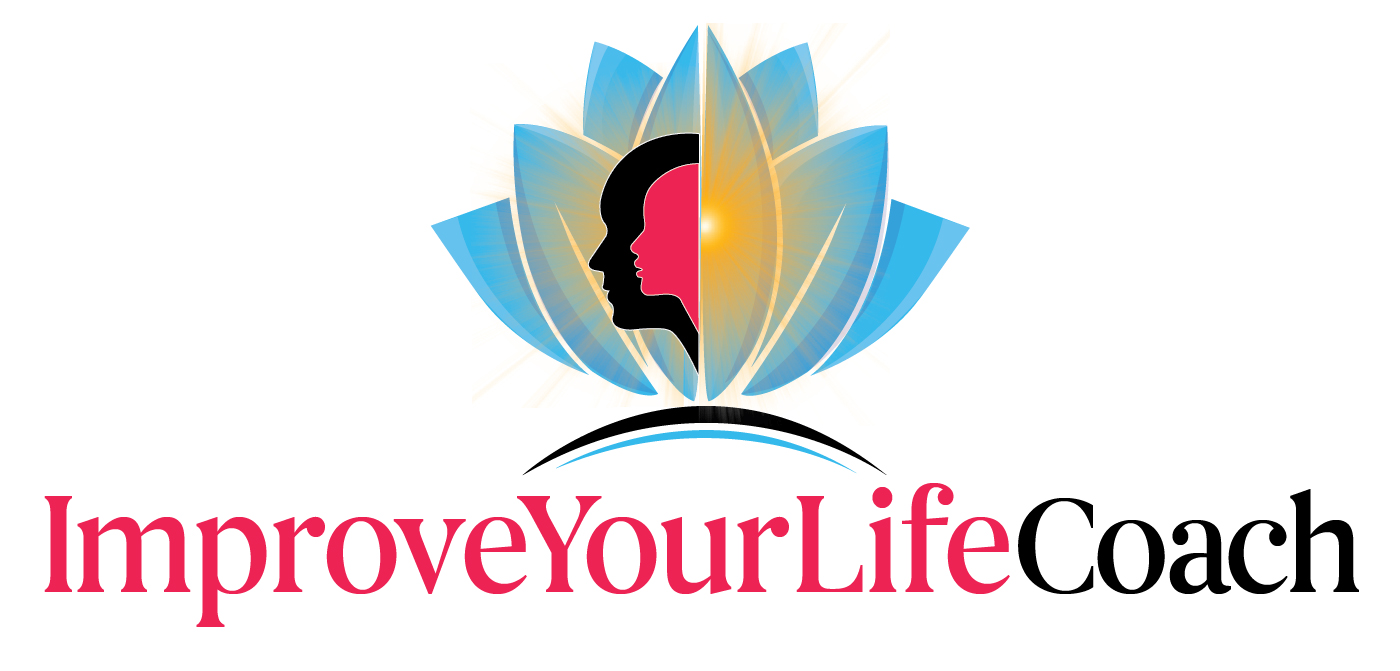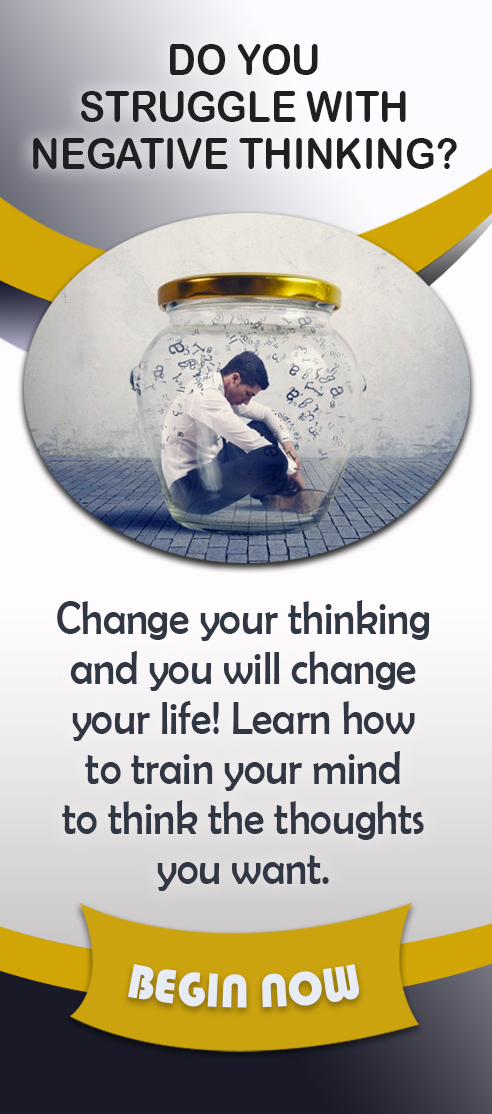Overcoming Negative Thinking
Overcoming Negative Thinking
Helping You For
Your Better Future
Helping You For
Your Better Future
Overcoming Negative Thinking Patterns
Do you ever struggle with negative thinking or obsess over worst-case scenarios? Do you ruminate on mistakes made in the past? Do you have feelings of recurring shame, guilt and pessimism? Are you frequently stressed, anxious, or depressed? Negative thinking patterns can have a strong and sometimes devastating impact on your relationships, health and career. However, once you learn to recognize and identify negative thought patterns as they occur, you can start to detach from them. Learn to train your mind to think the thoughts you want.
Self-Defeating Beliefs and Negative Thinking Patterns. In order to overcome negative thinking patterns and self-defeating beliefs, it is helpful to understand the difference between these two concepts. Your belief system consists of your personal opinions, attitudes, and values, and it is what shapes the way you perceive yourself and the world around you. Self-defeating beliefs mold an illusory reality that sets you up for failure and disappointment. For instance, if you believe that your self-worth is solely determined by your success, you will only feel happy when you are excelling at your career, accomplishing your goals, or attaining a desired status. Negative thinking patterns also known as cognitive distortions typically resurface during stressful periods and only strengthen your self-defeating beliefs. When faced with unexpected setbacks or impediments, negative thinking patterns may cause you to overanalyze or overstate the severity of a situation. You might start blaming or doubting yourself by thinking: “I’m not good enough”, “I’m not smart enough”, “I am a failure”, “I will never be able to succeed”, “Life sucks”, “It wasn’t meant to be”. Negative thinking is a conditioned thought process which erodes your self-esteem.
Ultimately thought patterns become a habitual way of thinking that is so deep-rooted, it exists on a subconscious level. Frequently unaware of their own thought patterns people struggle to distinguish between negative thinking patterns and everyday concerns. For instance, feeling sad about an upsetting event or worrying about financial burdens or relationship troubles is something we all do from time to time, and it is a perfectly normal process. However, the problem arises when those feelings become extreme, repetitive and persistent. Negative emotions are destructive to your wellbeing, and left untreated might lead to depression, ruined relationships, substance abuse, financial problems, health problems, and even death. You don’t need to struggle alone. Stress and anxiety share many of the same physical symptoms, making it difficult to spot the differences between them. Take the first step in finding your inner peace and create a meaningful and fulfilling life! Certified life coach will help you break the cycle of self-defeating beliefs and negative thinking patterns by shifting your thoughts and beliefs to more constructive and realistic ones. When properly handled, negative emotions can serve as “calls to action” sparking your transformation and navigating your life in the right direction.
Self-Defeating Beliefs and Negative Thinking Patterns. In order to overcome negative thinking patterns and self-defeating beliefs, it is helpful to understand the difference between these two concepts. Your belief system consists of your personal opinions, attitudes, and values, and it is what shapes the way you perceive yourself and the world around you. Self-defeating beliefs mold an illusory reality that sets you up for failure and disappointment. For instance, if you believe that your self-worth is solely determined by your success, you will only feel happy when you are excelling at your career, accomplishing your goals, or attaining a desired status. Negative thinking patterns also known as cognitive distortions typically resurface during stressful periods and only strengthen your self-defeating beliefs. When faced with unexpected setbacks or impediments, negative thinking patterns may cause you to overanalyze or overstate the severity of a situation. You might start blaming or doubting yourself by thinking: “I’m not good enough”, “I’m not smart enough”, “I am a failure”, “I will never be able to succeed”, “Life sucks”, “It wasn’t meant to be”. Negative thinking is a conditioned thought process which erodes your self-esteem.
Ultimately thought patterns become a habitual way of thinking that is so deep-rooted, it exists on a subconscious level. Frequently unaware of their own thought patterns people struggle to distinguish between negative thinking patterns and everyday concerns. For instance, feeling sad about an upsetting event or worrying about financial burdens or relationship troubles is something we all do from time to time, and it is a perfectly normal process. However, the problem arises when those feelings become extreme, repetitive and persistent. Negative emotions are destructive to your wellbeing, and left untreated might lead to depression, ruined relationships, substance abuse, financial problems, health problems, and even death. You don’t need to struggle alone. Stress and anxiety share many of the same physical symptoms, making it difficult to spot the differences between them. Take the first step in finding your inner peace and create a meaningful and fulfilling life! Certified life coach will help you break the cycle of self-defeating beliefs and negative thinking patterns by shifting your thoughts and beliefs to more constructive and realistic ones. When properly handled, negative emotions can serve as “calls to action” sparking your transformation and navigating your life in the right direction.
Overcoming Negative Thinking Patterns
Do you ever struggle with negative thinking or obsess over worst-case scenarios? Do you ruminate on mistakes made in the past? Do you have feelings of recurring shame, guilt and pessimism? Are you frequently stressed, anxious, or depressed? Negative thinking patterns can have a strong and sometimes devastating impact on your relationships, health and career. However, once you learn to recognize and identify negative thought patterns as they occur, you can start to detach from them. Learn to train your mind to think the thoughts you want.
Self-Defeating Beliefs and Negative Thinking Patterns. In order to overcome negative thinking patterns and self-defeating beliefs, it is helpful to understand the difference between these two concepts. Your belief system consists of your personal opinions, attitudes, and values, and it is what shapes the way you perceive yourself and the world around you. Self-defeating beliefs mold an illusory reality that sets you up for failure and disappointment. For instance, if you believe that your self-worth is solely determined by your success, you will only feel happy when you are excelling at your career, accomplishing your goals, or attaining a desired status. Negative thinking patterns also known as cognitive distortions typically resurface during stressful periods and only strengthen your self-defeating beliefs. When faced with unexpected setbacks or impediments, negative thinking patterns may cause you to overanalyze or overstate the severity of a situation. You might start blaming or doubting yourself by thinking: “I’m not good enough”, “I’m not smart enough”, “I am a failure”, “I will never be able to succeed”, “Life sucks”, “It wasn’t meant to be”. Negative thinking is a conditioned thought process which erodes your self-esteem.
Ultimately thought patterns become a habitual way of thinking that is so deep-rooted, it exists on a subconscious level. Frequently unaware of their own thought patterns people struggle to distinguish between negative thinking patterns and everyday concerns. For instance, feeling sad about an upsetting event or worrying about financial burdens or relationship troubles is something we all do from time to time, and it is a perfectly normal process. However, the problem arises when those feelings become extreme, repetitive and persistent. Negative emotions are destructive to your wellbeing, and left untreated might lead to depression, ruined relationships, substance abuse, financial problems, health problems, and even death. You don’t need to struggle alone. Stress and anxiety share many of the same physical symptoms, making it difficult to spot the differences between them. Take the first step in finding your inner peace and create a meaningful and fulfilling life! Certified life coach will help you break the cycle of self-defeating beliefs and negative thinking patterns by shifting your thoughts and beliefs to more constructive and realistic ones. When properly handled, negative emotions can serve as “calls to action” sparking your transformation and navigating your life in the right direction.
Self-Defeating Beliefs and Negative Thinking Patterns. In order to overcome negative thinking patterns and self-defeating beliefs, it is helpful to understand the difference between these two concepts. Your belief system consists of your personal opinions, attitudes, and values, and it is what shapes the way you perceive yourself and the world around you. Self-defeating beliefs mold an illusory reality that sets you up for failure and disappointment. For instance, if you believe that your self-worth is solely determined by your success, you will only feel happy when you are excelling at your career, accomplishing your goals, or attaining a desired status. Negative thinking patterns also known as cognitive distortions typically resurface during stressful periods and only strengthen your self-defeating beliefs. When faced with unexpected setbacks or impediments, negative thinking patterns may cause you to overanalyze or overstate the severity of a situation. You might start blaming or doubting yourself by thinking: “I’m not good enough”, “I’m not smart enough”, “I am a failure”, “I will never be able to succeed”, “Life sucks”, “It wasn’t meant to be”. Negative thinking is a conditioned thought process which erodes your self-esteem.
Ultimately thought patterns become a habitual way of thinking that is so deep-rooted, it exists on a subconscious level. Frequently unaware of their own thought patterns people struggle to distinguish between negative thinking patterns and everyday concerns. For instance, feeling sad about an upsetting event or worrying about financial burdens or relationship troubles is something we all do from time to time, and it is a perfectly normal process. However, the problem arises when those feelings become extreme, repetitive and persistent. Negative emotions are destructive to your wellbeing, and left untreated might lead to depression, ruined relationships, substance abuse, financial problems, health problems, and even death. You don’t need to struggle alone. Stress and anxiety share many of the same physical symptoms, making it difficult to spot the differences between them. Take the first step in finding your inner peace and create a meaningful and fulfilling life! Certified life coach will help you break the cycle of self-defeating beliefs and negative thinking patterns by shifting your thoughts and beliefs to more constructive and realistic ones. When properly handled, negative emotions can serve as “calls to action” sparking your transformation and navigating your life in the right direction.
Ready to get started?
Contact Me
Ready to get started?
Contact Me
Sessions are available in person and online.
The first session is a complimentary exploration.
Free of Charge and No Obligation!
If you decide you would like to work together, future sessions are one hour, and frequency is dependent on your needs.
If you wish to Sign Up for a Free Consultation or have any questions please use this Contact Form, Live Chat,
or Call 516-776-6606
I look forward to hearing from you!
The first session is a complimentary exploration.
Free of Charge and No Obligation!
If you decide you would like to work together, future sessions are one hour, and frequency is dependent on your needs.
If you wish to Sign Up for a Free Consultation or have any questions please use this Contact Form, Live Chat,
or Call 516-776-6606
I look forward to hearing from you!



